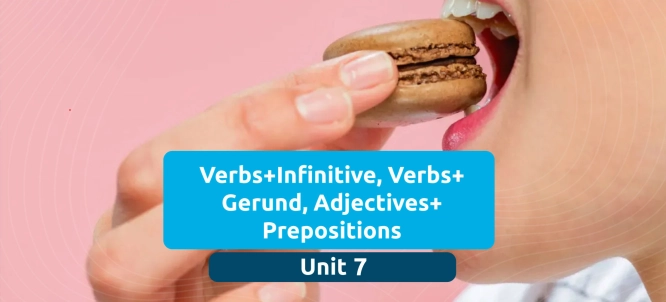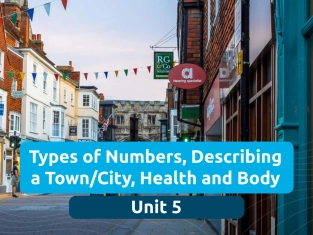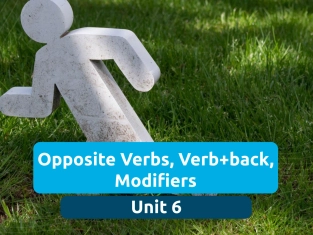by PushtoLearn
Unit 7 - Verbs+Infinitive, Verbs+Gerund, Adjectives+Prepositions
Table of Contents
Unit 7, English File Pre-Intermediate 4th - Exercises and Flashcards
These exercises focus on Unit 7, English File Pre-Intermediate 4th
Wordlist for Unit 7, English File Pre-Intermediate 4th
|
Word |
Example |
|
(don't) mind doing |
I don't mind doing the cooking but I hate washing up. |
|
decide to go |
Where did you decide to go on holiday? |
|
enjoy reading |
I enjoy reading. I read a book a week. |
|
feel like cooking |
I feel like cooking fish tonight. |
|
finish tidying |
Can you finish tidying your room? |
|
forget to turn off |
Don't forget to turn off the light. |
|
go on working |
I'm tired. I don't know how long I can go on working. |
|
hate being |
I hate being late when I'm meeting someone. |
|
hope to see |
I hope to see you at the weekend. |
|
learn to drive |
I want to learn to drive. I hate walking! |
|
like having |
I like having my dog. He's so friendly. |
|
love getting up |
I love getting up early and doing as much as possible. |
|
need to go |
I need to go to the shop. We haven't got any milk. |
|
offer to help |
The shop assistant was not friendly, and didn't offer to help. |
|
plan to get married |
We plan to get married next year. |
|
pretend to be ill |
Did you ever pretend to be ill so you didn't have to go to school? |
|
promise to pay |
I promise to pay you back later. |
|
remember to bring |
Remember to bring your laptop. The computer is broken. |
|
spend time talking |
My family live far away, so I spend time talking to them on the phone. |
|
start raining |
When did it start raining? |
|
start to rain |
When did it start to rain? It's so wet out there. |
|
stop making |
Stop making so much noise! |
|
try to get |
I'll try to get it but there might not be any left. |
|
want to catch |
I want to catch the 12.30 train. |
|
would like to buy |
I would like to buy a car but I don't have the money. |
|
afraid of |
I'm afraid of dogs. |
|
angry with |
Are you angry with me? I'm sorry. |
|
bad at |
I'm bad at maths. I'd like to be better. |
|
different to |
This city is quite different to mine. It's much bigger and noisier. |
|
famous for |
My country is famous for its food. |
|
full of |
The city centre is full of tourists. |
|
good at |
I'm good at dancing. I love dancing. |
|
good for |
Drinking water is good for you. |
|
interested in |
I'm interested in the history of my city. It's very old. |
|
nice to |
Please be nice to your little sister. |
|
chemist's |
You should pick up some medicine at the chemist's. |
|
drugs |
Are you allergic to any drugs ? - Yes, penicillin. |
|
How many do I have to take? |
How many do I have to take? - Four a day. |
|
I have a bad stomach. |
I have a bad stomach. I think I ate bad food. |
|
I have a cold. |
I have a cold. I need some tissues. |
|
I have a headache. |
I have a headache. I can't think. |
|
I have a temperature. |
I have a temperature. I should stay at home today. |
|
I have a cough. |
I have a cough. My throat hurts. |
|
I have the flu. |
I have the flu. I have a headache and a temperature. |
|
I'm allergic to… |
I'm allergic to penicillin. Can I have ibuprofen? |
|
I'm not feeling very well. |
I'm not feeling very well. Can I go home? |
|
It'll make you feel better. |
Take this. It'll make you feel better. |
|
pharmacy |
Can you tell me where the nearest pharmacy is, please? |
|
What are your symptoms? |
What are your symptoms? - I have a headache. |
|
You should see a doctor. |
This looks serious. You should see a doctor. |
|
I should go back to the hotel now. |
I'm tired. I should go back to the hotel now. |
|
I'm glad you're feeling better. |
I'm glad you're feeling better. You will be fine tomorrow. |
|
I'm sure I'll be fine. |
I'm sure I'll be fine. It's only a cold. |
|
It was a pleasure. |
Thank you for a great night. - It was a pleasure. |
|
Thanks again for a great evening. |
Thanks again for a great evening. - You're welcome! |
|
Thanks so much for inviting me. |
Thanks so much for inviting me. - It was great to see you. |
|
That isn't very good for you. |
Don't drink too much coffee. That isn't very good for you. |
|
That was a lovely meal. |
That was a lovely meal. You cook really well. |

Featured Topics for Unit 7
Verbs + Infinitive
Try to (verb)
-
Definition: To make an effort to do something.
-
Example: She will try to finish her homework before dinner.
-
Explanation: "Try to" emphasizes an attempt to achieve a specific goal.
Forget to (verb)
-
Definition: To not remember to do something.
-
Example: He forgot to turn off the lights before leaving.
-
Explanation: Used for discussing actions that should have been done but were not remembered.
Decide to (verb)
-
Definition: To make a choice to do something.
-
Example: They decided to move to a bigger house.
-
Explanation: Helps convey deliberate actions or plans.
Verbs + Gerund
Enjoy doing (verb)
-
Definition: To take pleasure in an activity.
-
Example: She enjoys reading novels in her free time.
-
Explanation: "Enjoy" is always followed by a gerund, not an infinitive, to describe hobbies or preferences.
Avoid doing (verb)
-
Definition: To keep away from doing something.
-
Example: He avoided speaking during the meeting.
-
Explanation: Helps express efforts to prevent or evade certain actions.
Finish doing (verb)
-
Definition: To complete an activity.
-
Example: They finished painting the house yesterday.
-
Explanation: "Finish" is always followed by a gerund to indicate the completion of a task.
Adjectives + Prepositions
Afraid of (adjective + preposition)
-
Definition: Feeling fear about something.
-
Example: She is afraid of flying in airplanes.
-
Explanation: This phrase helps express common fears or anxieties.
Good at (adjective + preposition)
-
Definition: Skilled in a particular activity.
-
Example: He is good at solving puzzles.
-
Explanation: Used to highlight someone’s strengths or abilities.
Interested in (adjective + preposition)
-
Definition: Having curiosity or enthusiasm for something.
-
Example: She’s interested in learning new languages.
-
Explanation: Commonly used to describe hobbies or passions.
FAQ
What’s the difference between verbs + infinitive and verbs + gerund?
Some verbs, like "try" or "decide," are followed by the infinitive form (to + base verb), while others, like "enjoy" or "avoid," require a gerund (verb + -ing). This difference depends on the verb and changes the meaning in some cases.
Can "forget to" and "forget doing" mean different things?
Yes. "Forget to" means not remembering to do something (e.g., forget to call someone), while "forget doing" means not remembering that you’ve already done something (e.g., forget locking the door).
How can I remember which prepositions go with certain adjectives?
Practice and exposure are key! Reading and listening to English often will help you notice common adjective-preposition combinations like "afraid of" or "interested in."
Why do some verbs, like "enjoy," never use the infinitive?
Certain verbs, like "enjoy," are always followed by a gerund because of their fixed grammatical patterns in English. Learning these patterns through examples and practice helps you use them correctly.

